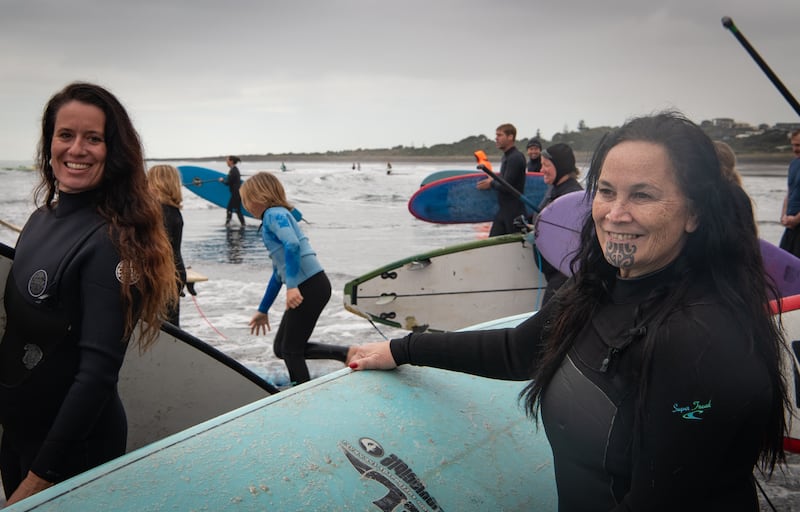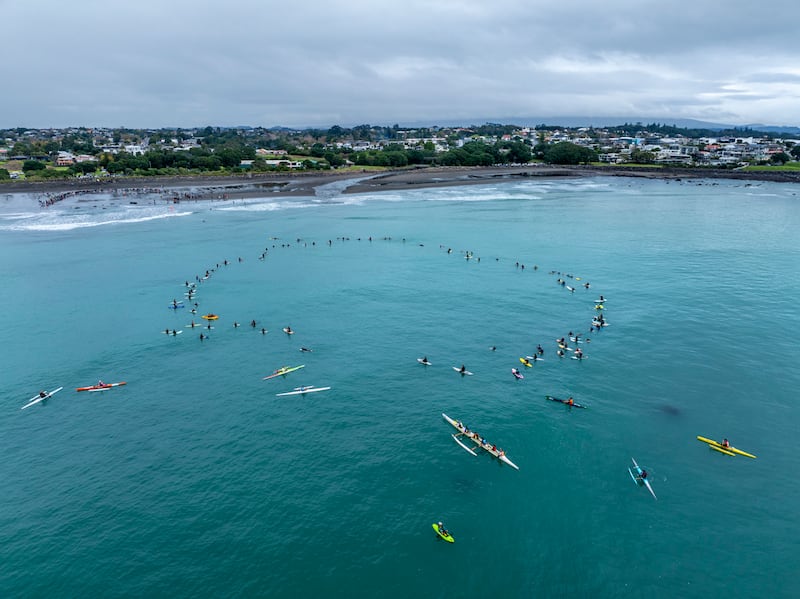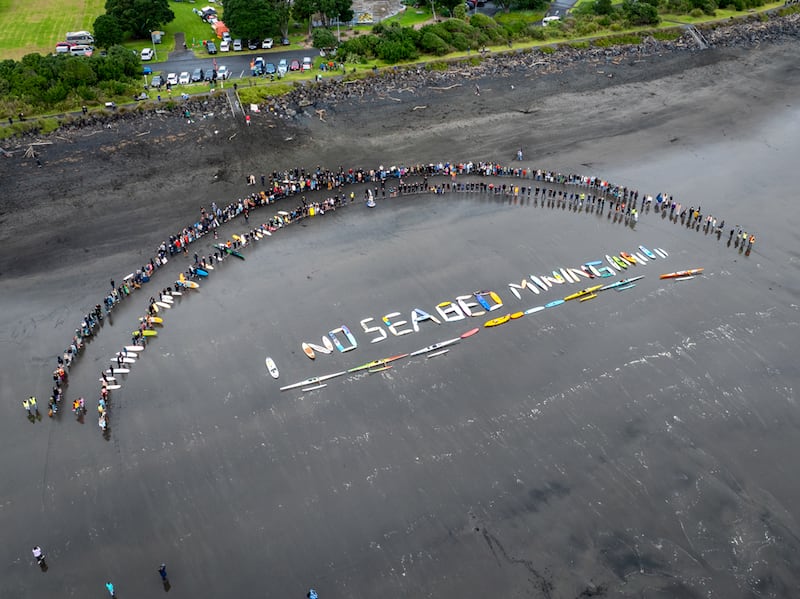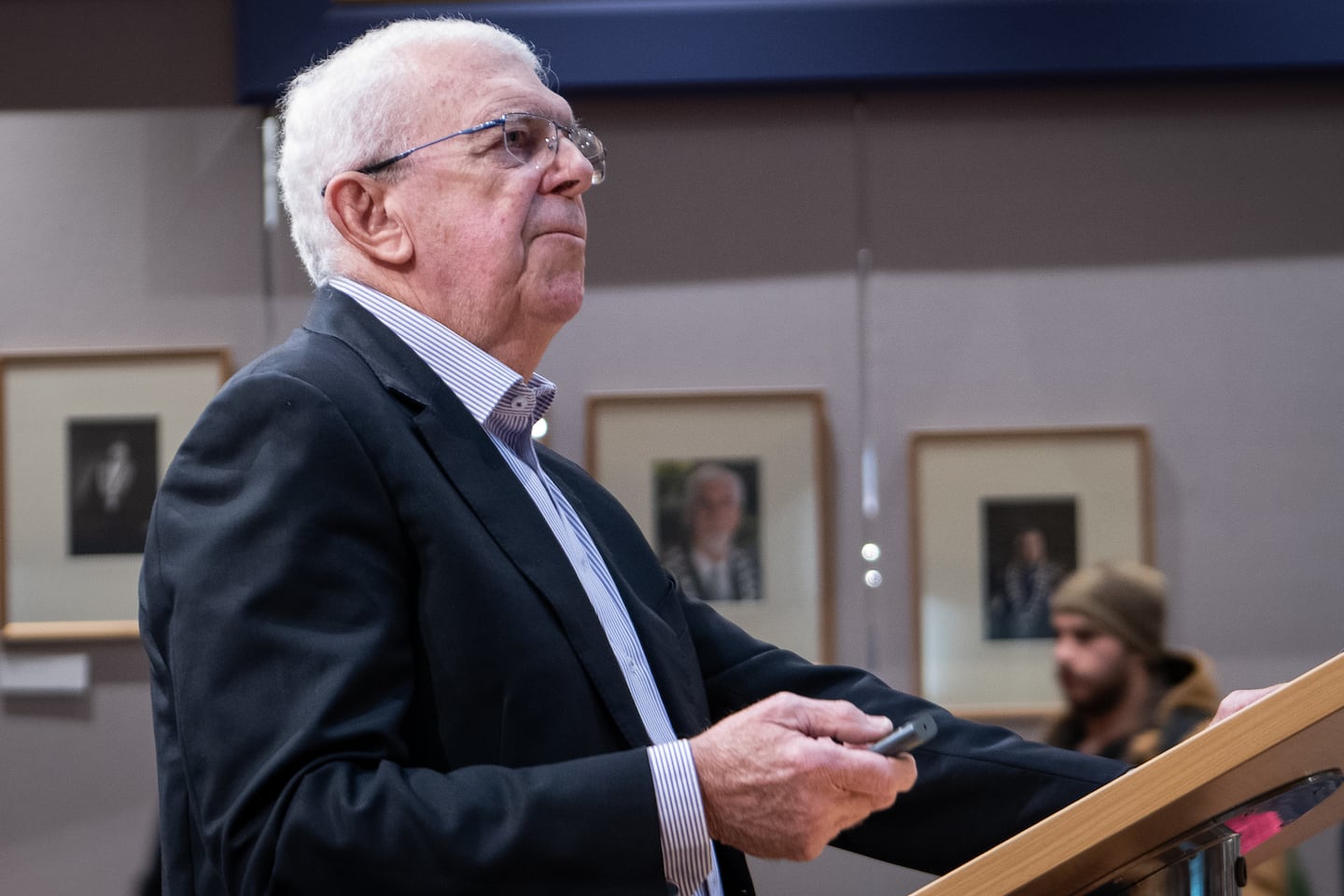The Australian company applying to mine the South Taranaki seabed wants iwi to jump on board and get to work keeping an eye on the environment.
Iwi along the South Taranaki coast through to Whanganui oppose Trans-Tasman Resources’ proposed mine just outside the 12-mile limit off Pātea.
Aotea waka hapū are seeking an urgent Waitangi Tribunal injunction to halt processing of Trans-Tasman’s application under the Fast-track Approvals Act.
All eight iwi around Taranaki Maunga are opposed over concerns of environmental and cultural impacts.

But Trans-Tasman Resources (TTR) managing director this week told New Plymouth District Council change is coming.
“We’re going to be working with South Taranaki iwi when we get our consents, whether they want us or not,” Alan Eggers said.
“We want them to come on board and actually do a lot of the marine monitoring and research for us: and we will provide the tools, the equipment and they can develop expertise.”
Eggers said TTR had engaged with Ngāti Ruanui, Ngāruahine, Ngaa Rauru Kiitahi and “others in the area”, taking into account their concerns “as best we understand them”.
“These are not tokenisms.”

Te Tai Hauaūru MP Debbie Ngarewa-Packer said Eggers’ claim of engagement and offer of jobs was absurd given consistent, unanimous rejection from mana whenua.
“Taranaki iwi and community haven’t fought and won in every court for the last 12 years for him to say ‘get over it’,” Ngarewa-Packer said.
The Pāti Māori co-leader has led Ngāti Ruanui, neighbouring iwi and wider community opponents in the fight against the miners.
“He’s in a rush to please his shareholders and we care about our environment and community.”
Eggers’ bullish, hour-long presentation to New Plymouth councillors rehashed the company’s position that its mine posed no environmental risk and would be a treasure trove for the region and nation.
The mining ship would churn through 50 million tonnes of seabed annually, pumping more than 90 percent back into the shallow waters of the Pātea Shoals.
TTR needs marine consents to discharge waste sediment, a recognised pollutant.

Opponents again filled the council’s public gallery, mostly organised by Protect Our Moana Taranaki.
A key fear is that a drifting plume of fine sediment would smother the abundant reefs of the Pātea Shoals.
Eggers told New Plymouth District Council (NPDC) the miners want to steer clear of silt to avoid fouling-up magnetic separation of the iron-dominant ore – so any plume would be occasional, harmless and quickly dissipate.
TTR has failed to persuade authorities right through to the Supreme Court of its environmental safety claims.
But Eggers said the Fast-track Approvals Act changed all that, with economic benefits now the top consideration thanks to “our friends – Ministers [Chris] Bishop, [Simeon] Brown and [Shane] Jones”.

Analysis TTR contracted from the New Zealand Institute of Economic Research (NZIER) estimated region benefits of:
• 305 jobs directly with the miner;
• 1125 Taranaki-based jobs indirectly in areas like logistics and supplies;
• $250 million Taranaki operational spend annually;
• port upgrades at New Plymouth and Whanganui; and
• a TTR charitable grants trust.
NZIER’s report for the miners predicted annual national gains of:
• $55 million in royalties;
• $136 million in corporate tax; and
• $855 million in foreign exchange earnings.
Eggers said New Zealanders own 20 percent of TTR and he had advice for critics claiming most profits would flow offshore: “Buy shares!”

Arguments against the offshore mine are detailed in a motion for NPDC’s meeting on Tuesday from councillor and lawyer Amanda Clinton-Gohdes.
“The proposed seabed mining operation poses significant environmental risks to marine biodiversity and culturally significant areas, while offering uncertain long-term economic benefit to the region.”
“The proposal also competes with recreational and commercial users of the area such as fisheries, wind energy, recreation, mahinga kai and tourism.”
As Eggers appeared in New Plymouth, Whanganui’s mayor slated TTR for gaps in its proposal and failing to engage with locals.
Clinton-Gohdes wants New Plymouth to join Whanganui and South Taranaki and stand against the mine.
She said it was crucial to host Eggers.
“It’s important we hear from all sides.
“TTR presented their perspective and I’m glad they felt they were heard.”
The motion calls for the Fast-track decision panel to let NPDC formally comment on TTR’s application.
Taranaki Regional Council is also looking to maximise its input under the pro-development law.




